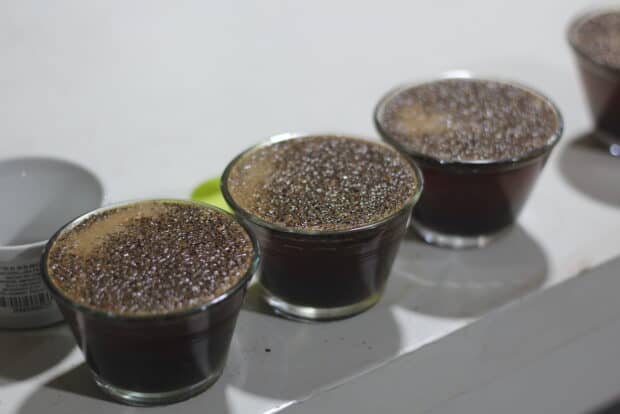The Specialty Coffee Association of Panama (SCAP) has alleged cheating among one or more producers in this year’s Best of Panama green coffee competition, adding to a growing industry-wide debate on the production of “co-fermented” or “infused” coffees.
In a statement posted to its website and signed by SCAP President J. Hunter Tedman, the association said it discovered four “infused” coffees submitted to the competition that “were found to be altered from their natural DNA expression, likely with the intent to score higher and win by using foreign additives.”
The statement further called on other green coffee competition bodies around the world to adopt a stance that “prevents the artificial homogenization of different terroirs and varietals worldwide.”
The SCAP said the four “altered” coffees were ejected from the competition, which will culminate on Aug. 8 with the annual Best of Panama auction, a long-running boutique green coffee auction that routinely fetches astronomical prices from buyers from all over the world, particular for the Gesha, or “Geisha” variety of coffee.
For example, last year’s Best of Panama auction resulted in an average per-pound price of US$868.
Related Posts
Notably, the call to protect the provenance of Panamanian competition coffee ignores the fact that Panamanian Gesha originated in the forests of Ethiopia before developing its own unique genetic fingerprint and quality characteristics in Panama.
(Note: The DCN style guide defaults to the word Gesha, rather than “Geisha” to describe the variety, although many other organizations, including Best of Panama and the SCAP, prefer “Geisha.”)
While not explicitly using the term “co-fermented,” the statement from the SCAP represents a rare public hard stance against co-fermented or infused coffees, which have gained in popularity over the past few years among producers, traders and roasters.
As yet, there is no widely established industry definition for co-fermented or infused coffee, nor are such coffees regulated differently in international trade.
However, co-fermented or infused coffees typically involve some additive, such as fruit sugars or an experimental yeast slurry, at the fermentation stage, designed to result in enhanced or added flavors once the coffees are fully processed, roasted, ground and brewed.
The co-fermentation movement is typically seen as an extension of the post-harvest processing innovation wave that has hit the coffee industry over the past decade.
Proponents of co-fermentation in coffee processing often cite the potential for high quality, new flavor experiences and the potential for more farmer or producer income through farm- or mill-level innovation.
Opponents of the experimental techniques often cite food safety issues such as allergens, a lack of transparency and the potential for adulteration or “cheating” in the marketplace.
The SCAP statement concluded, “We believe altered or infused coffees should be categorized separately, clearly distinguishing them from genuine specialty coffee.”
Comments? Questions? News to share? Contact DCN’s editors here.
Nick Brown Nick Brown is the editor of Daily Coffee News by Roast Magazine.


